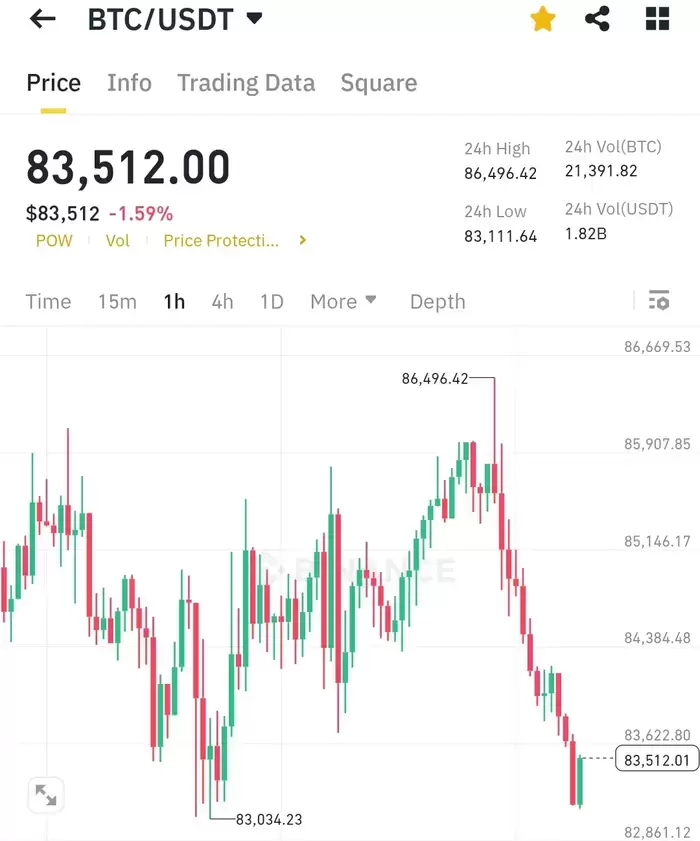 |
|
 |
|
 |
|
 |
|
 |
|
 |
|
 |
|
 |
|
 |
|
 |
|
 |
|
 |
|
 |
|
 |
|
 |
|
Cryptocurrency News Articles
The Mechanisms That Establish and Maintain Bitcoin's Value Proposition in a Digital Economy
Apr 15, 2025 at 09:19 pm
Behind the volatile price movements and technical discussions lies a more fundamental consideration: the mechanisms that establish and maintain bitcoin's value proposition in a digital economy.

In the early days of bitcoin, discussions about its value often invoked skepticism, especially among institutional investors. Financial pundits dismissed the digital asset as speculative hysteria, while techies debated whether a decentralized currency could establish sustainable worth.
Yet over a decade later, bitcoin has transformed from an exciting technological experiment into a trillion-dollar asset class that is now used by everyone from hedge funds to governments.
Behind the volatile price movements and technical discussions lies a more fundamental consideration: the mechanisms that establish and maintain bitcoin’s value proposition in a digital economy.
Unlike fiat currencies that can be printed endlessly, bitcoin has a hard cap of 21 million coins that will ever exist. This programmatic scarcity creates a digital parallel to precious metals but with even more predictable supply constraints.
Every four years, bitcoin undergoes a “halving” event that cuts the rate of new coin issuance in half. This systematic reduction in supply growth coupled with steady or increasing demand creates natural upward pressure on its price over time.
However, scarcity alone doesn’t explain bitcoin’s persistent value—you could create a cryptocurrency with only 100 tokens, but that wouldn’t make it valuable. What separates bitcoin is its network strength.
Bitcoin was the first to achieve a truly decentralized financial network that isn’t controlled by any central authority and that no government can shut down. Its distributed ledger system runs across thousands of computers worldwide, making it remarkably resilient to censorship or control.
This decentralization isn't just philosophical—it creates practical value. Bitcoin enables international transfers without intermediaries, often faster and cheaper than traditional banking systems. For people in countries with unstable currencies or restrictive capital controls, bitcoin provides a vital financial alternative that can’t be devalued by local monetary policies.
Bitcoin’s trajectory from a niche internet experiment to a mainstream financial asset has been remarkable. Early skepticism from traditional finance has given way to strategic adoption.
BlackRock, the world’s largest asset manager, now offers Bitcoin investment products. El Salvador has adopted bitcoin as legal tender. Major payment processors integrate bitcoin options. Each institutional adoption strengthens bitcoin’s legitimacy and creates deeper market liquidity.
The approval of spot Bitcoin ETFs in early 2024 also provides a crucial avenue for traditional investors to gain bitcoin exposure through familiar investment vehicles. This institutional infrastructure makes catastrophic collapse increasingly implausible.
Perhaps bitcoin’s most compelling argument for value is simply its survival. Since 2009, bitcoin has weathered:
* Multiple 50%+ price crashes
* Constant security scrutiny and attempts to shut down the network
* Global regulatory uncertainty and shifts in legal status
* Countless media declarations that bitcoin is “dead” or a scam
Yet through each challenge, bitcoin has recovered to reach new highs. This demonstrated resilience creates a powerful feedback loop of confidence. Each survival test bitcoin passes makes the next potential crisis less threatening to its underlying value proposition.
The current financial landscape reveals bitcoin’s growing integration into broader economic structures. From treasury reserves of public companies to retirement portfolios, bitcoin has established legitimacy that extends far beyond its early adopters. This institutional embrace reflects a maturing recognition of bitcoin’s unique properties within a diversified financial ecosystem.
Perhaps most tellingly, bitcoin has survived multiple cycles of stress testing, regulatory attempts at control, technical attacks, macroeconomic crashes, and attempts to create competing alternatives. Each cycle of resistance and recovery has served to strengthen its network effects and harden its value proposition.
Whether ultimately functioning as digital gold, a global settlement layer, or something not yet fully articulated, bitcoin's fundamental contribution of creating verifiable digital scarcity without central control has permanently expanded our conception of value in a networked age.
Disclaimer:info@kdj.com
The information provided is not trading advice. kdj.com does not assume any responsibility for any investments made based on the information provided in this article. Cryptocurrencies are highly volatile and it is highly recommended that you invest with caution after thorough research!
If you believe that the content used on this website infringes your copyright, please contact us immediately (info@kdj.com) and we will delete it promptly.
-

-

-

- Ripple Eyes a Landmark SEC Settlement Paid in XRP as CEO Brad Garlinghouse Boldly Forecasts Bitcoin Hitting $200,000
- Apr 16, 2025 at 01:25 pm
- Ripple Chief Executive Brad Garlinghouse said the company’s settlement with the U.S. Securities and Exchange Commission (SEC) could potentially involve payment in XRP. He also offered a bullish outlook on bitcoin’s future price during an April 10 interview with Fox Business.
-

-

-

- Fresh From Convincing GameStop to Buy Bitcoin, Strive Asset Management CEO Matt Cole Now Wants Intuit to Do the Same
- Apr 16, 2025 at 01:20 pm
- input: Fresh from successfully convincing game retailer GameStop to add Bitcoin to its balance sheet, Strive Asset Management CEO Matt Cole has now set his sights on fintech firm Intuit to do the same.
-

-

- Bitcoin (BTC) Faces a Critical Test as Global Markets Remain Volatile and Macroeconomic Tensions Escalate
- Apr 16, 2025 at 01:15 pm
- Bitcoin is facing a critical test as global markets remain volatile and macroeconomic tensions escalate. After weeks of price swings and uncertainty, BTC is trading above the $85,000 level — a psychological and technical threshold that bulls have managed to defend.
-

- Bitcoin (BTC) has been moving between $80,00 and $85,00 for the fourth day as the uncertain market for the U.S.-China trade dispute continues.
- Apr 16, 2025 at 01:10 pm
- In the meantime, most of the world's transactions are from de facto kimchi coins from Korean exchanges. All of the top coins in the upbit growth rate over the past week were also taken up by coins with a high share of Korean transactions.



























































